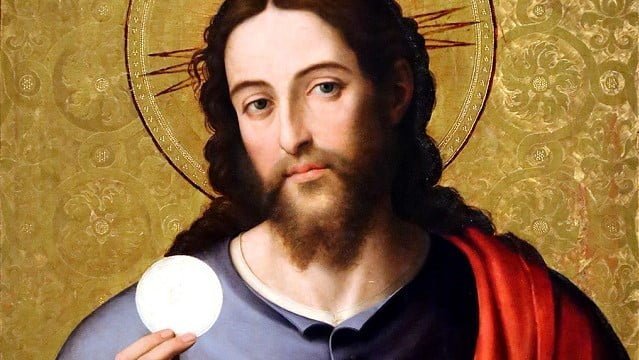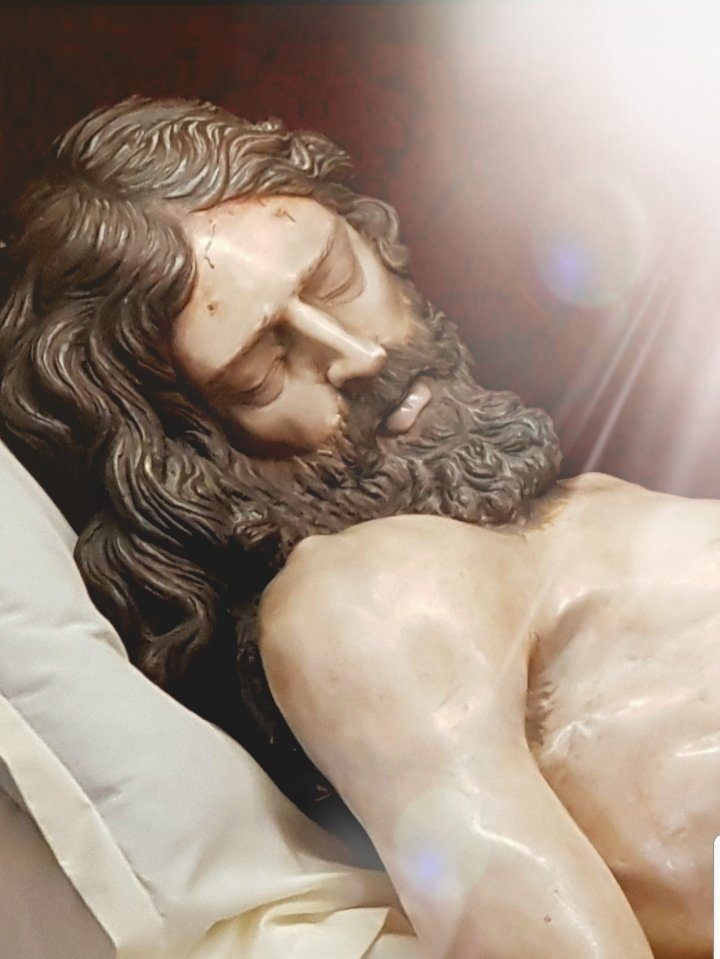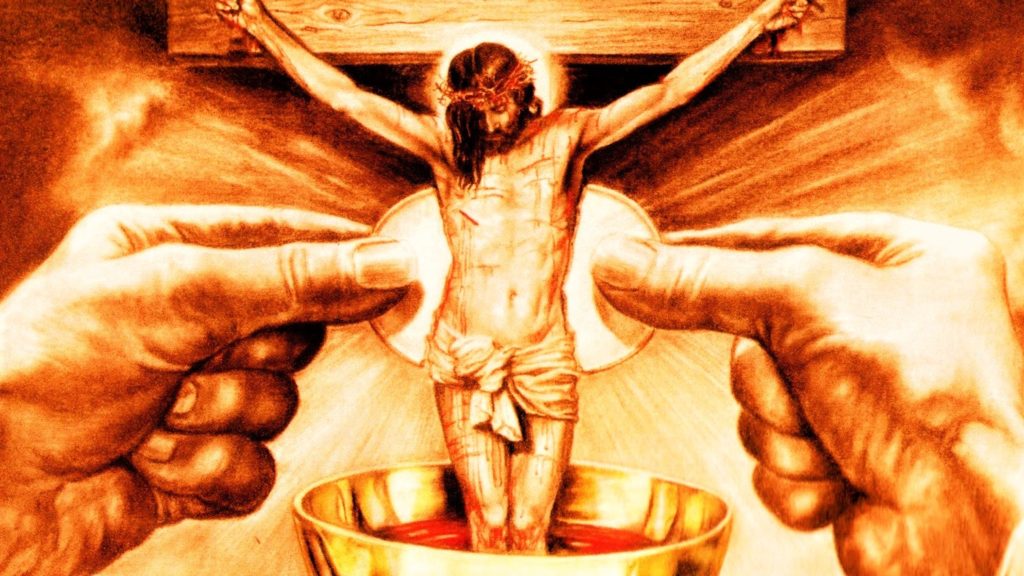Tuesday, 3rd week of Easter
DAILY GOSPEL AND COMMENTARY:
“I AM THE BREAD OF LIFE.”
Jn 6:30-35.

Gospel of Tuesday, 3rd week of Easter.
Jn 6:30–35
The crowd said to Jesus: “What sign can you do, that we may see and believe in you? What can you do? Our ancestors ate manna in the desert, as it is written: He gave them bread from heaven to eat.”
So Jesus said to them, “Amen, amen, I say to you, it was not Moses who gave the bread from heaven; my Father gives you the true bread from heaven. For the bread of God is that which comes down from heaven and gives life to the world.”
So they said to Jesus, “Sir, give us this bread always.” (35) Jesus said to them, “I am the bread of life; whoever comes to me will never hunger, and whoever believes in me will never thirst.”
GOSPEL COMMENTARY from the Navarre Bible, Commentary to the Gospel of St. John (with permission)
vv. 28-34 This dialogue between Jesus and his hearers is reminiscent of the episode of the Samaritan woman (cf. Jn 4:11-15). On that occasion Jesus was speaking about water springing up to eternal life; here, he speaks of bread coming down from heaven to give life to the world. There, the woman was asking Jesus if he was greater than Jacob; here the people want to know if he can compare with Moses (cf. Ex 16:13).
- “The Lord spoke of himself in a way that made him seem superior to Moses, for Moses never dared to say that he would give food which would never perish but would endure to eternal life. Jesus promises much more than Moses. Moses promised a kingdom, and a land flowing with milk and honey, good health and other temporal blessings…, plenty for the belly, but food which perishes; whereas Christ promised food which never perishes but which endures forever” (St Augustine, In Ioann. Evang., 25:12).
These people know that the manna — food which the Jews collected every day during their journey through the wilderness (cf. Ex 16: 1 3fl) symbolized messianic blessings; which was why they asked our Lord for a dramatic sign like the manna.
- But there was no way they could suspect that the manna was a figure of a great supernatural messianic gift which Christ was bringing to mankind — the Blessed Eucharist.
- In this dialogue and in the first part of the discourse (vv. 35-47), the main thing Jesus is trying to do is bring them to make an act of faith in him, so that he can then openly reveal to them the mystery of the Blessed Eucharist — that he is the bread “which comes down from heaven, and gives life to the world” (v. 33). Also, St Paul explains that the manna and the other marvels which happened in the wilderness were a clear prefiguring of Jesus Christ (cf. I Cor 10:3-4).
The disbelieving attitude of these Jews prevented them from accepting what Jesus revealed.
- To accept the mystery of the Eucharist, faith is required, as Paul VI stressed: “In the first place we want to remind you that the Eucharist is a very great mystery; strictly speaking, to use the words of sacred liturgy, it is ‘the mystery of faith’. This is something well known to you but it is essential to the purpose of rejecting any poisonous rationalism. Many martyrs have witnessed to it with their blood. Distinguished Fathers and Doctors of the Church in unbroken succession have taught and professed it We must, therefore, approach this mystery, above all, with humble reverence, not following human arguments, which ought to he hushed, but in steadfast adherence to divine revelation” (Mysterium fidei).
v.35 Jesus said to them, “I am the bread of life; whoever comes to me will never hunger, and whoever believes in me will never thirst.”
- Going to Jesus means believing in him, for it is through faith what we approach our Lord. Jesus uses the metaphor of food and drink to show that he is the one who really meets all man’s noblest aspirations:
- “How beautiful is our Catholic faith! It provides a solution for all our anxieties, calms our minds and fills our hearts with hope” (St. Josemaria, The Way, 582).
VIDEO REFLECTION TOPIC: WHAT KIND OF FOOD KEEPS YOU ALIVE AND SPIRITUALLY WELL?
In today’s gospel reading, people were hungry for the bread Jesus gave them when He fed them by the thousands in the miracle of the five loaves and two fish. But Jesus tells them to work instead for the bread of eternal life. He is the bread of life that satisfies a more permanent spiritual hunger – that leads to eternal suffering.
We can draw comparisons between our natural physical hunger and thirst. Jesus uses this to point to Himself as the source of spiritual food that will permanently keep us alive.
A SHORT VIDEO COMMENTARY FROM THE CHAIRMAN OF COUPLES FOR CHRIST:
DO YOU FEEL LIKE GIVING UP?
Worth the watch.
Stay updated: subscribe by email for free TO OUR NEW WEBSITE www.catholicsstrivingforholiness.org (PUT YOUR EMAIL IN THE SUBSCRIBE WIDGET).
We are also in www.fb.com/Catholicsstrivingforholiness. Kindly help more people in their Christian life by liking our page and inviting your family, friends and relatives to do so as well. Thanks in advance and God bless you and your loved ones! Fr. Rolly Arjonillo

